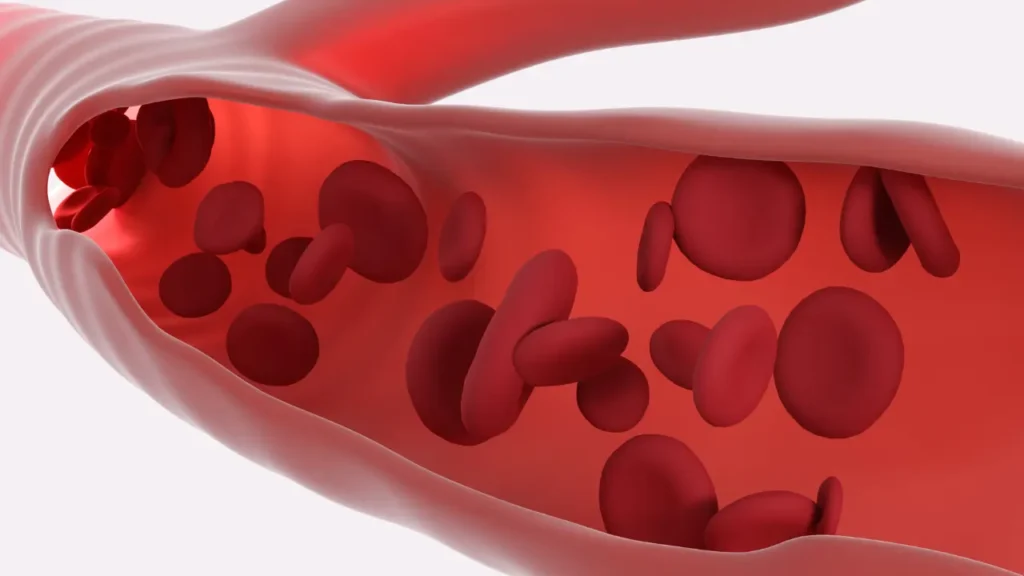The Camellia sinensis plant’s leaves are used to make black tea, a popular brew that is enjoyed all over the world. Because of its oxidation process during manufacturing, it has a distinctive flavor and color. Due to its high polyphenol content, particularly theaflavins and catechins, black tea has attracted a lot of interest recently due to its possible health advantages. The nature of black tea, its health advantages, recommended dosage, negative effects, potential drug interactions, and appropriate use are all covered on this page.
You May Also Like:
Keep Your Brain Young With the 5 Most Powerful Nootropic Supplements
Finding the Best Supplements for Brain Fog After COVID: 5 Top Brands Reviewed
Black Tea: Benefits, Dosage, Side Effects, Drug Interactions, and Other Important Information is an original (NootropicsPlanet) article.
Nature of Black Tea
Black tea has a different nature than other varieties of tea, including green, white, and oolong, due to its unique production method. All teas are made from the Camellia sinensis plant’s leaves; however, different processing methods result in varying levels of oxidation, which ultimately affects the tea’s color, flavor, and chemical makeup. The most severe oxidation is applied to black tea, giving it a deeper color and a more potent flavor profile.
Health Benefits of Black Tea
Circulatory Health
Consuming black tea has been linked to better cardiovascular health. Theaflavins and catechins have antioxidant properties that lower inflammation and oxidative stress, which are factors in the etiology of cardiovascular illnesses. Consuming black tea was linked to a lower risk of coronary heart disease development, according to a meta-analysis of prospective cohort studies (Liu et al., 2013).
Anti-Cancer Features
In numerous in vitro and in vivo investigations, the polyphenols in black tea have shown anticancer properties. According to research by Khan and Mukhtar (2018), theaflavins and catechins can stop cancer cells from proliferating, trigger apoptosis, and prevent angiogenesis. The modification of signaling pathways, such as the PI3K/Akt/mTOR and MAPK/ERK pathways, which control cell proliferation, apoptosis, and angiogenesis, is one of the molecular processes underpinning these effects (Khan & Mukhtar, 2018).
Cognitive Fitness
Black tea’s antioxidant and anti-inflammatory characteristics may have neuroprotective effects. According to a study by Kuriyama et al. (2006), older persons who drink more black tea have a lower risk of cognitive deterioration. Black tea’s polyphenols may also influence the production and release of neurotransmitters like dopamine and serotonin, which are essential for maintaining emotional stability and cognitive function.
Weight Control
It has been hypothesized that black tea can help with weight management by modifying lipid metabolism and boosting thermogenesis. Black tea polyphenols decreased body weight and fat buildup in obese mice generated by a high-fat diet, according to a study by Pan et al. (2014). The suppression of lipogenesis and the activation of lipolysis and fatty acid oxidation in adipose tissue may be the mechanisms causing these effects.

Chemistry of Black Tea
Black tea has a complex chemical makeup that includes a number of bioactive substances like polyphenols, alkaloids, amino acids, carbs, and volatile chemicals. The most prevalent ingredient in black tea is polyphenols, which comprise 30–40% of the dry weight. These phenolic chemicals are mainly made up of phenolic acids, flavanols, flavandiols, and flavonoids.
The two primary polyphenols found in black tea are theaflavins and catechins. The oxidation of tea leaves produces theaflavins, such as theaflavin-3-gallate, theaflavin-3′-gallate, and theaflavin-3,3′-gallate. Black tea also contains catechins, albeit in fewer amounts than green tea. Examples of catechins in black tea include epicatechin, epigallocatechin, and epigallocatechin-3-gallate (EGCG). These polyphenolic substances have anti-inflammatory, anticancer, and antioxidant characteristics, adding to black tea’s health advantages.
Physiological Mechanisms of Action
Black tea’s many bioactive components, which interact with the human body via a number of physiological pathways, are responsible for its health advantages.
- Antioxidant Activity: Black tea contains polyphenols with high antioxidant activity, including theaflavins and catechins. Free radicals and reactive oxygen species (ROS), which are produced during regular cellular metabolism and can result in oxidative stress and cause cellular damage and inflammation, can be neutralized by these substances.
- Anti-inflammatory Activity: It has been demonstrated that the polyphenols in black tea regulate the expression of cytokines and enzymes that promote inflammation, including tumor necrosis factor-alpha (TNF-), interleukin-6 (IL-6), and cyclooxygenase-2 (COX-2). Black tea can help lessen inflammation and its related health concerns by blocking these pro-inflammatory molecules.
- Vasodilatory Effects: Nitric oxide (NO) generation in the vascular endothelium is stimulated by the polyphenols in black tea, notably EGCG, which can lead to vasodilation. Strong vasodilator, nitric oxide, aids in blood vessel relaxation and increases blood flow, which can lower blood pressure and enhance cardiovascular health.
- Modulation of Lipid Metabolism: Black tea polyphenols can affect lipid metabolism by preventing the creation of fatty acids, or lipogenesis, and encouraging the breakdown of stored lipids, or lipolysis. Black tea can also improve thermogenesis and encourage the oxidation of fatty acids, which can both increase energy expenditure and help with weight management.
- Neuroprotection: Black tea’s polyphenols can have neuroprotective benefits by lowering oxidative stress and inflammation in the brain and regulating the production and release of neurotransmitters like dopamine and serotonin. An improvement in emotional control and cognitive performance may result from these effects.
- Antimicrobial Activity: Black tea’s polyphenols have the ability to fight off a range of bacteria, viruses, and fungi. This may lead to enhanced immune system performance and gastrointestinal health.
It becomes evident how the bioactive components in black tea can offer a wide range of health benefits, from cardiovascular health to cognitive function and weight control, by understanding these physiological mechanisms of action.

Optimal Dosage of Black Tea
The best amount of black tea to consume for health benefits depends on a person’s tolerance, age, and health status. For most people, drinking 3–4 cups (240–320 mL) of black tea daily is generally considered safe and advantageous. While still within the acceptable range for caffeine consumption, this amount offers a significant amount of polyphenols.
Side Effects of Black Tea
Drinking black tea in moderation is generally regarded as safe. However, due primarily to its caffeine content, excessive consumption can result in some side effects. These negative impacts could consist of:
- Insomnia and sleeping problems
- Anxiety and irritation
- Increasing blood pressure and heart rate
- Disturbances of the digestive system, such as acid reflux and cramping
- A rise in diuresis, which could lead to dehydration
Caffeine sensitivity varies from person to person; thus, some may experience adverse effects even at modest consumption levels.
Potential Substance Interactions with Black Tea
Due mainly to its caffeine concentration, black tea may interact with some drugs and substances. Among the possible interactions are:
- Stimulant medications: Black tea may intensify the stimulant effects of drugs like amphetamines, increasing blood pressure and heart rate.
- Anticoagulant and antiplatelet drugs: When coupled with anticoagulant or antiplatelet medications like warfarin or aspirin, theaflavins in black tea may decrease platelet aggregation, potentially raising the risk of bleeding.
- Diabetes drugs: Due to their potential hypoglycemic effects, black tea may reduce the effectiveness of diabetes treatments and raise hypoglycemia risk.

Responsible Use of Black Tea
Proper consumption of black tea is crucial to maximizing the health advantages and reducing any potential adverse effects and interactions. Several guidelines for responsible use are as follows:
- If well tolerated, begin with a moderate daily intake of 1-2 cups and progressively increase to 3-4 cups.
- Select high-quality black tea with low pollutants, pesticides, or chemicals.
- Avoid drinking black tea right before bed to reduce the chance of insomnia.
- If you are pregnant, nursing, have a pre-existing medical condition or are taking medications that may interact with black tea, talk to a healthcare provider before ingesting black tea.
Black Tea:
Conclusion
While black tea has potential health benefits, it should be consumed as part of a balanced diet. It’s crucial to consume black tea in moderation, as excessive intake of caffeine may lead to side effects. Additionally, individual health conditions and sensitivities should be taken into consideration. Although black tea can be a part of a healthy lifestyle, it’s advisable to consult healthcare professionals for personalized advice, especially for individuals with specific health concerns or conditions.

References:
- Black tea: Health benefits, research, and how to drink it. Medical News Today. Retrieved from: https://www.medicalnewstoday.com/articles/319276
- The health benefits of black tea. WebMD. Retrieved from: https://www.webmd.com/vitamins-and-supplements/black-tea-uses-and-risks
- Health benefits of black tea, the most popular drink in the world. Healthline. Retrieved from: https://www.healthline.com/nutrition/black-tea-benefits
Important Note: The information contained in this article is for general informational purposes only, and should not be construed as health or medical advice, nor is it intended to diagnose, prevent, treat, or cure any disease or health condition. Before embarking on any diet, fitness regimen, or program of nutritional supplementation, it is advisable to consult your healthcare professional in order to determine its safety and probable efficacy in terms of your individual state of health.
Regarding Nutritional Supplements Or Other Non-Prescription Health Products: If any nutritional supplements or other non-prescription health products are mentioned in the foregoing article, any claims or statements made about them have not been evaluated by the U.S. Food and Drug Administration, and such nutritional supplements or other health products are not intended to diagnose, treat, cure, or prevent any disease.


